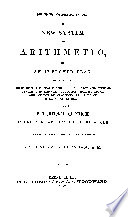 | Charles Guilford Burnham - Arithmetic - 1857 - 328 pages
...considered, viz. : the first and last terms, the number, common difference, and sum of all the terms ; any three of which being given, the other two may be found. 1. If I buy 4 books, giving 2 cents for the first, 4 for the second, and so on, with a common difference... | |
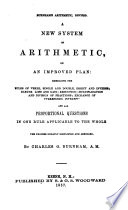 | Charles Guilford Burnham - 1857 - 342 pages
...considered, viz. : the first and last terms, the number, common difference, and sum of all the terms ; any three of which being given, the other two may be found. 1. If I buy 4 books, giving 2 cents for the first, 4 for the second, and so on, with a common difference... | |
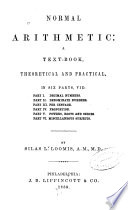 | Silas Lawrence Loomis - Arithmetic - 1859 - 324 pages
...Equi-different Series, any three of which being given, the remaining two may be found. These are— 1st. The First Term. 2d. The Last Term. 3d. The Number of Terms. 4th. The Common Ratio. 5th. The Sum of the Series. 374. The first and last are called extremes. 379. The remaining... | |
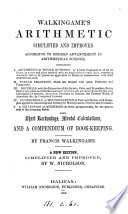 | Francis Walkinghame - 1859 - 200 pages
...<и= the number of terms, jd= the common difference or equidifference. * s = the sum of all the terms. Any three of which being given, the other two may be found. I. The first, second, and third terms given to find thefißh. RULE. Multiply the sum of the two extremes... | |
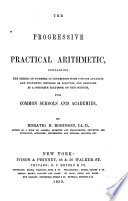 | Horatio Nelson Robinson - Arithmetic - 1859 - 348 pages
...the difference between any two adjacent terms. 437. There are Jive parts in an arithmetical series, any three of which being given, the other two may be found. They are as follows : the first term, last term, common difference, number of terms, and sum of all... | |
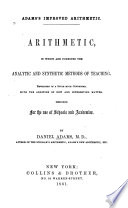 | Daniel Adams - Arithmetic - 1861 - 452 pages
...extremes, and the other terms are called the means. There are five things in an arithmetical progression, any three of which being given, the other two may be found : 1st. Theirs* term. 2d. The last term. 3d. The number of terms. 4th. The common difference. 5th. The sum... | |
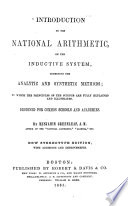 | Benjamin Greenleaf - Arithmetic - 1861 - 338 pages
...difference is called the common difference of the progression. Any three of the five following things being given, the other two may be found : 1st. The first term, or first extreme ; 2d. The last term, or last extreme; 3d. The number of terms; 4th. The common difference;... | |
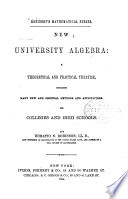 | Horatio Nelson Robinson - Algebra - 1864 - 444 pages
...APPLICATION OF THE FOKMULAS. 364. The two primitive equations, contain the five quantities, a, r, l, n, S, any three of which being ~given, the other two may be found; for, by substitution of the given values, the result will always be two equations involving but two... | |
 | George Augustus Walton - Arithmetic - 1864 - 364 pages
...viz., the First Term, the Last Term, the Number of Terms, the Common Ratio, and the Sum of the Terms; any three of which being given, the other two may be found. 495. To FIND THE LAST TERM OF A SERIES, THE FIRST TERM, THE RATIO, AND NUMBER OP TERMS BEING GIVEN.... | |
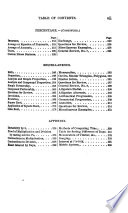 | George Augustus Walton - Arithmetic - 1864 - 376 pages
...viz., the First Term, the Last Term, the Number of Terms, the Common Ratio, and the Sum of the Terms; any three of which being given, the other two may be found. 495. To FIND THE LAST TERM OF A SERIES, THE FIRST TERM, THE RATIO, AND NUMBER OF TERMS BEING GIVEN.... | |
| |